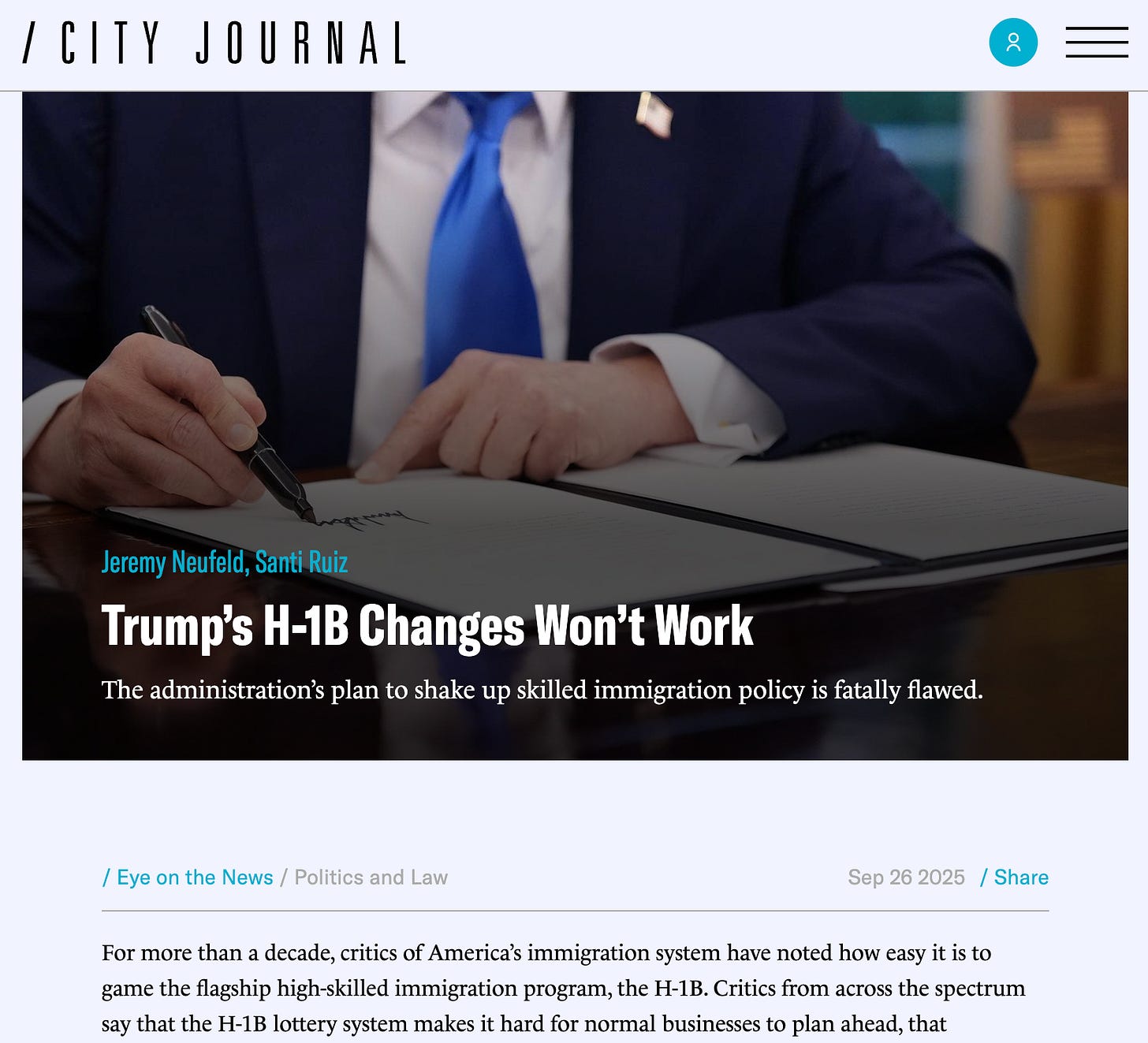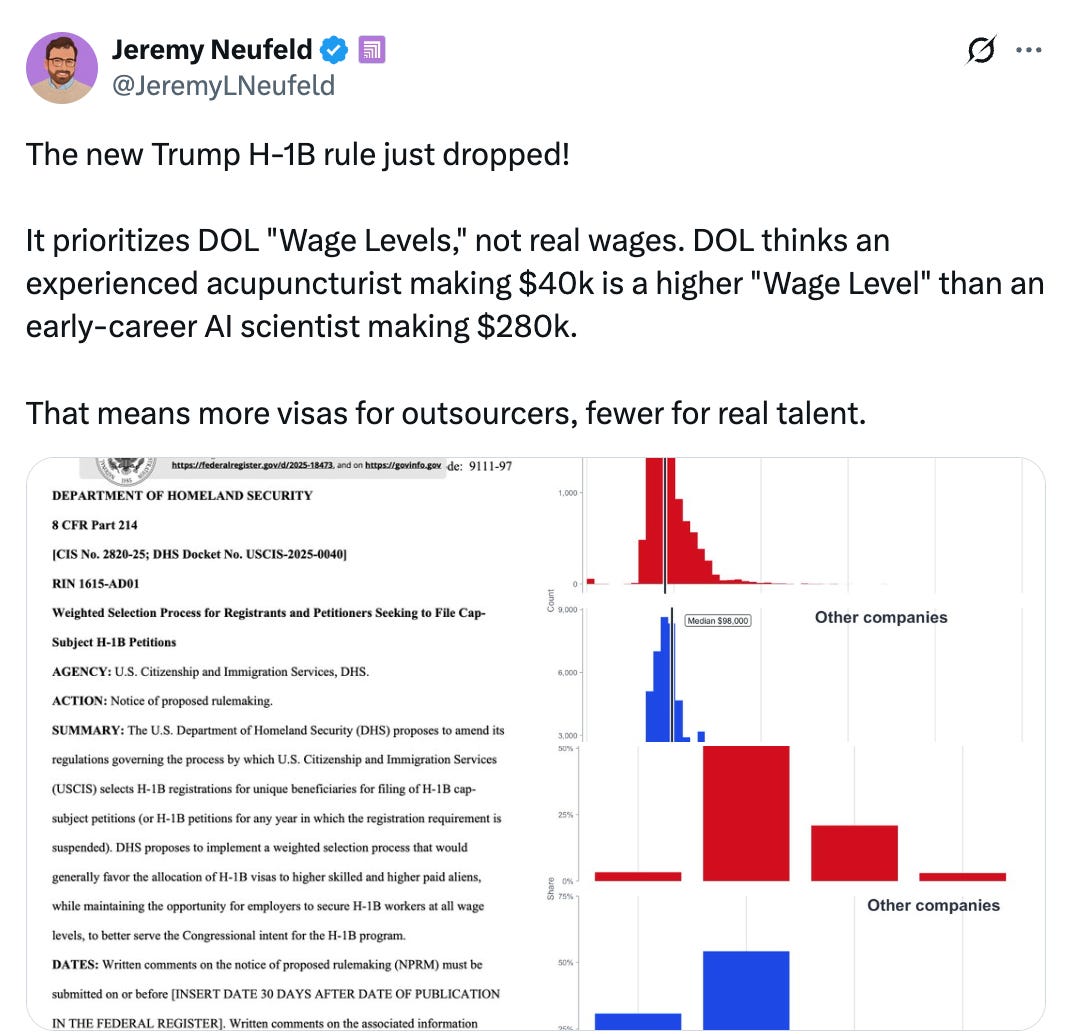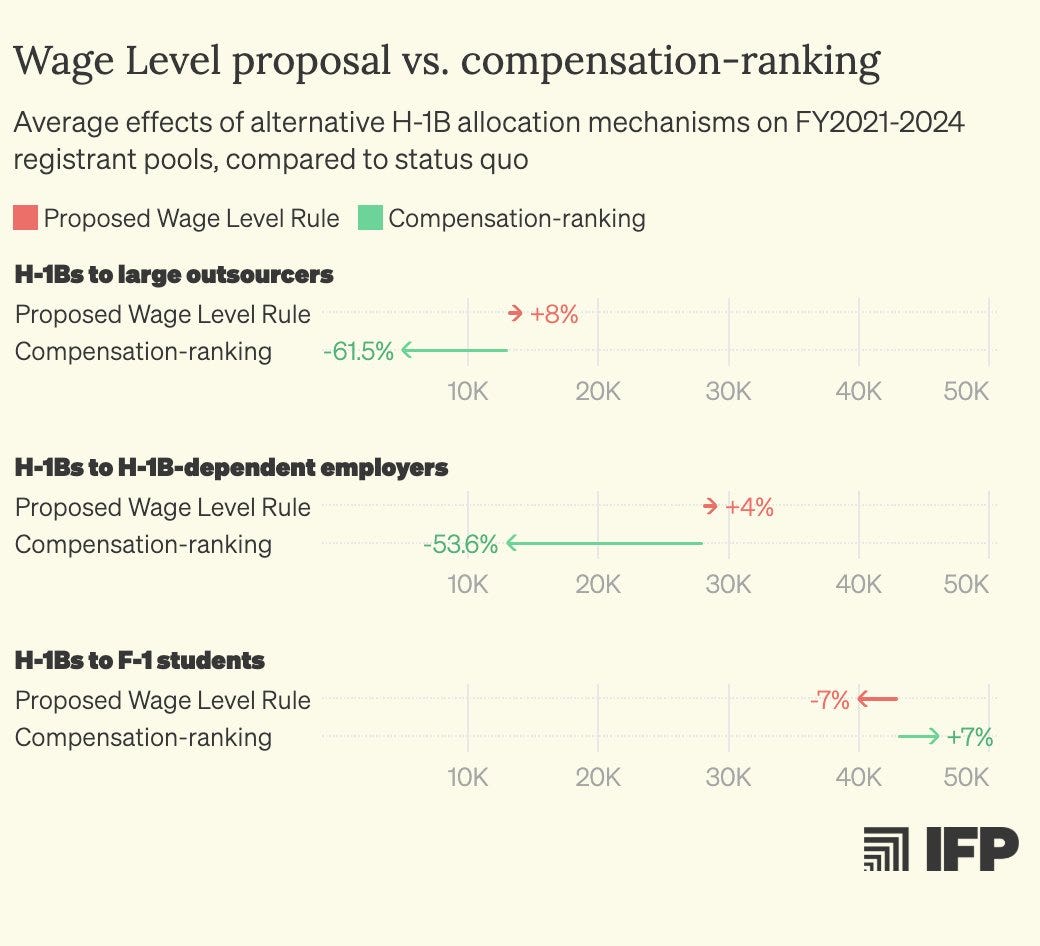Trump's H-1B Changes Will Backfire
A quick look at some poor statecraft
One of the recurring themes of Statecraft has been that it’s really easy to get policy wrong. Government work is just hard — as Dean Ball said recently about work in the White House, it can be like trying to dig through the hull of a container ship with a butter knife. It’s especially easy to get policy wrong if you fixate on the wrong metrics. We talked about this with DOGE: how if you do it wrong, slashing headcount increases bureaucratic bloat and government lethargy. If you have fewer people administering the same regulatory process, the burden on the private actors being regulated actually grows. As a policymaker, your ambition and drive don’t matter if you don’t have your arms around the nature of the problem.
This afternoon, I’ve got a new op-ed in City Journal with my colleague at IFP, Jeremy Neufeld. It’s called “Trump’s H-1B Changes Won’t Work,” and in it, we try and flesh out why exactly the recent spate of changes to the H-1B visa program won’t fix the problems critics identify with the H-1B. Those critics are right to say the H-1B needs reform, and they’re pointing to real problems with the existing system. But (we argue) that’s exactly why you need to think hard about policy implementation, and the second-order effects of changing a policy. Otherwise, you can end up doing precisely the opposite of what you intend.
Case in point: The administration has made a set of regulatory moves to get higher-skilled talent into the H-1B lottery. But the moves likely won’t do that. And, according to new research from the IFP immigration team, they will likely lead to even more visas going to the scammy Indian outsourcing companies that the right has correctly identified as abusers of the process.
That’s because the new regulation uses an arcane Department of Labor system for identifying the “wage level” of an H-1B applicant, and wage levels are only loosely correlated to the actual wages being offered to that applicant. If that seems bizarre to you, it really is. Read the piece!
As a bonus, here’s the admin’s wage level proposal, vs. what would happen if you just allocated H-1Bs to the applicants being offered the highest compensation.







If Trump fails then it’s much, much worse.
The old ways are best.
This post is like reading the intellectuals of Constantinople debating the gender of angels in 1453.
VR, the Turks.
We’re just outside.
If you assume Trump’s goal is to change H1Bs to create growth and improve immigration policy, then I suggest you’re giving the man quite a bit of credit.
If his goal is to put tech companies into very bad positions that only he can save them from - that “leverage” he loves, well, then he’s accomplishing his goal quite well. He’s definitely forcing tech CEOs to beg him to carve out an exception for their particular company in exchange for “favors” from the Don.